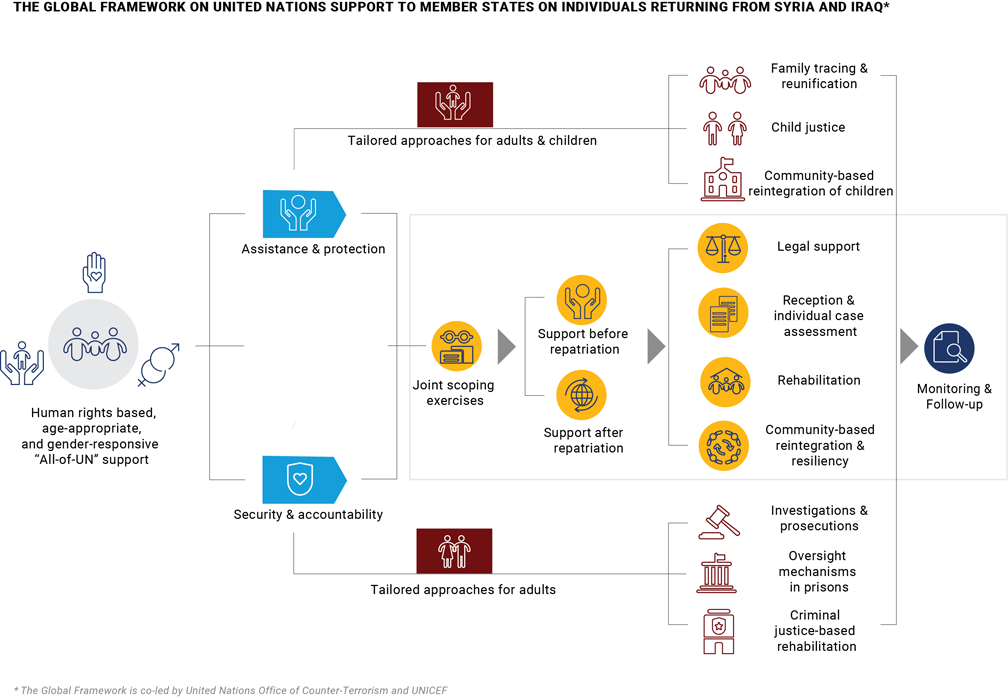- عربي
- 中文
- English
- Français
- Русский
- Español
The Global Programme on Prosecution, Rehabilitation and Reintegration (PRR)

“The situation of foreign terrorist fighters and associated family members will only become more protracted without our joint efforts to protect, prosecute, rehabilitate and reintegrate”.
The Global Programme on Prosecution, Rehabilitation and Reintegration (PRR)
Collectively, Security Council resolutions 2178 (2014), 2349 (2017) and 2396 (2017) establish requirements for Member States to develop and implement comprehensive and tailored prosecution, rehabilitation, and reintegration (PRR) strategies for individuals who they have reasonable grounds to believe are terrorists, including suspected foreign terrorist fighters (FTFs) and their accompanying family members, including spouses and children. These PRR strategies need to be gender-responsive and human rights-based and address the diverse circumstances of those with links to terrorist groups, who may be women, men, boys or girls. Despite this, Member States face complex challenges in their efforts and request UN assistance to operationalize the requirements of comprehensive and tailored PRR strategies.
The Global Programme on PRR supports the counter-terrorism efforts of Member States by providing guidance, coordination and capacity building in the PRR of terrorist suspects, including returning FTFs and their families. Member States as well as relevant UN entities will benefit from improved cohesion and a common vision of various UN counter-terrorism, human rights and protection mandates working on PRR issues.
Returning Home
Over 43,000 individuals from approximately 110 countries are believed to have traveled to Syria and Iraq to join ISIL and other groups. Following ISIL’s loss of territory, approximately 11,200 individuals, mostly women and children, remain stranded in camps in Syria and Iraq.
The United Nations encourages Member States to repatriate their nationals in line with international law.
Watch the story of Ali and his mother caught in a humanitarian and security crisis with no end in sight.



